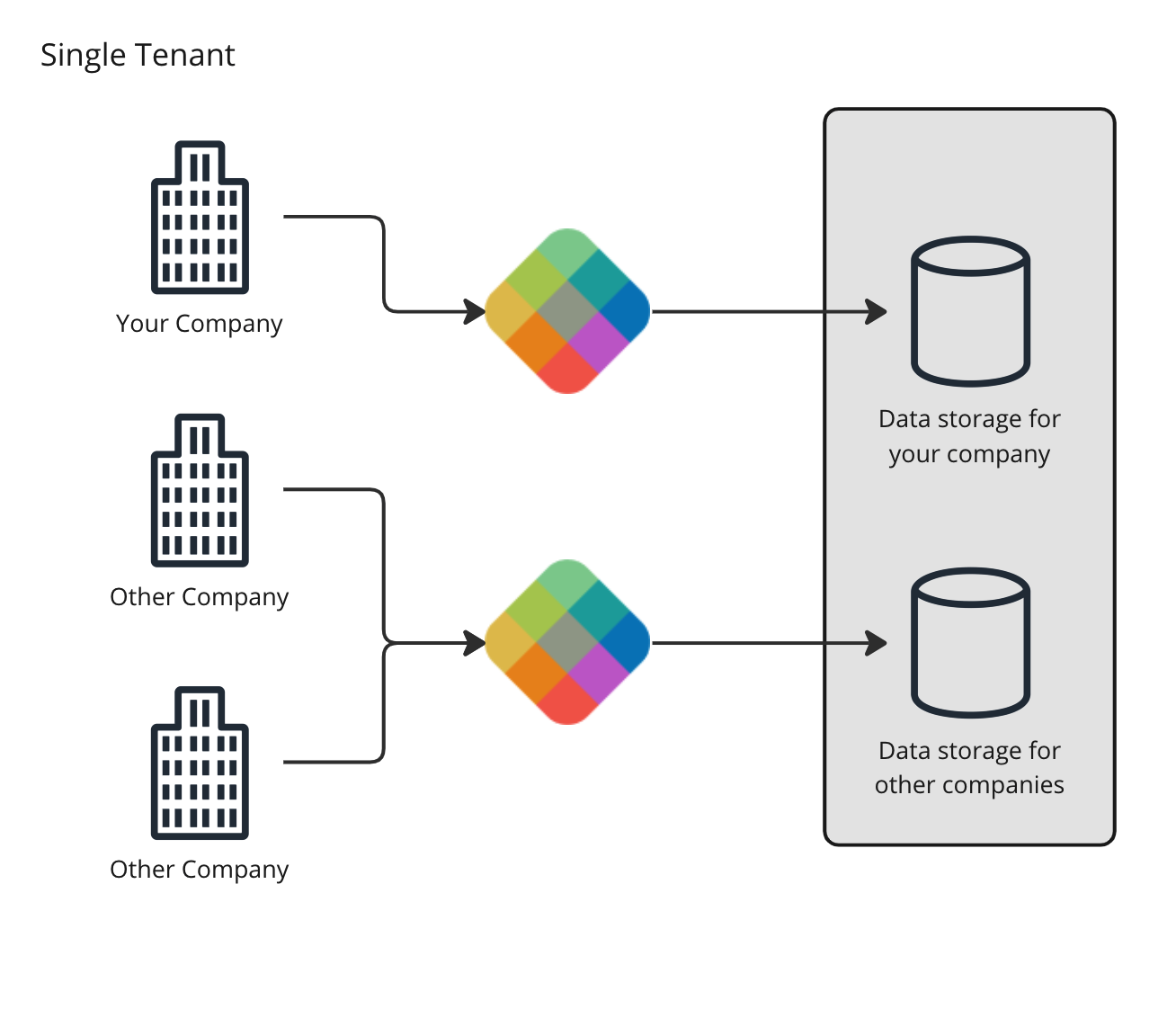Single-Tenant
What is Single-Tenant?
Single-Tenant architecture is a reference to a single instance of a software application that serves a single customer. Each customer has their own dedicated instance of the software, databases, and infrastructure.
The Single-Tenant model is most commonly chosen by Enterprise businesses, or businesses with strict requirements about security or data storage.

Single-Tenant Analogy: Standalone House
You can think of a Single-Tenant solution like a standalone house where the entire property is used by one family. Everything from the front yard to the garage is exclusive to that one family. This is akin to a Single-Tenant system where the software, infrastructure, and database serve just one customer.
What are the Benefits of Choosing Single-Tenant
- Customization: Single-Tenancy can allow Mosaic to accommodate customizations that cannot be accommodated in a Multi-Tenant environment.
- Security: Just as an individual house can have its own security systems, alarm codes, and surveillance, single-tenancy offers potentially tighter security since there’s no risk of other tenants accidentally accessing data they shouldn’t.
- Performance: There's no "noise" from other tenants. This means that the software can be optimized for the specific needs of that one tenant, much like how everything in a standalone house is optimized for the family living there.
- Upgrades on Your Terms: You decide when to upgrade. There’s no need to worry about changes being forced due to the needs of other tenants.
How do I Know if Single-Tenant is Right for Me?
Deciding on a single-tenant solution often hinges on the following considerations:
- Unique Needs: If your organization has highly specific requirements that demand extensive customizations, a single-tenant solution might be ideal.
- Security: Organizations dealing with highly sensitive data may opt for single-tenancy to ensure the highest level of data protection.
- Control Over Upgrades: If you want to dictate the exact timings and nature of your software upgrades, single-tenancy offers this control.
Updated 15 minutes ago
